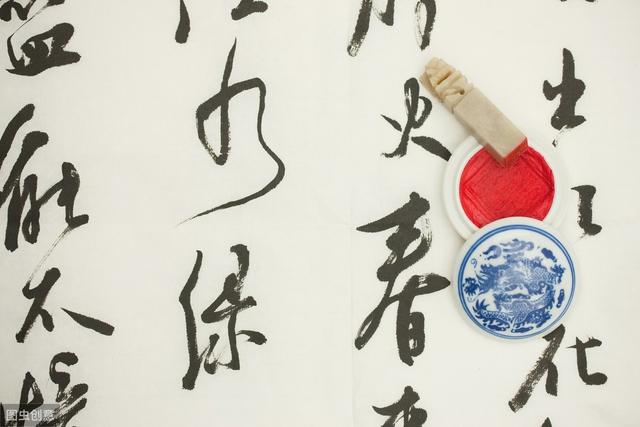Why hasn’t China abandoned Hanzi?
为什么中国没有放弃汉字?
本文是翻译Quora中一个外国友人的回答。
Benjamin Kowarsch, mechanical/electrical/software engineer and project manager
Updated Feb 1
Why would the Chinese want to replace their writing system? Just for you? Do you think that’s a reasonable expectation?
为什么中国人想替换他们的书写系统?仅仅是为了你?你认为这是合理的需求吗?
From the perspective of the Chinese and their languages their writing system works just fine.
以中国人的观点和他们的语言来看他们的书写系统运作良好。
And then, what would the Chinese replace it with? A phonetic writing system?
接下来,中国人将用什么来替换它?用一个基于发音的书写系统吗?
What makes you think that a phonetic writing system would suit the Chinese languages?
是什么让你认为基于发音的书写系统适合这些中文?
Note, that I wrote languages in the plural above. That’s not a typo. There is no single Chinese language. There are many Chinese languages and most of them are not mutually intelligible.
请注意,我在上面写的是语言的复数形式。这不是一个错字。因为中国语言不是一种。有许多中国语言,其中大部分都不是可以互相理解的。
The further geographically apart any two Chinese live from one another the less likely they will be able to understand each other. However, they can communicate through writing Hanzi with their fingers into their hands. The stroke order is fixed so if you watch somebody writing into the air you can make out what character they are writing.
如果两个中国人生活的地理位置距离越远,他们就越不可能相互理解。然而,他们可以通过用手指将汉字写入他们的手心中进行交流。笔画顺序是固定的,所以如果你看到有人写到空中,你可以看出他们写的是什么字。
This works even if the language isn’t a Chinese language. Japan, Korea and Vietnam also use Chinese characters to write in their own languages.
这种方式不但对中文有效,日本,韩国和越南在他们自己的语言中也使用中国文字。
At one time in Hong Kong, I jumped into a taxi and said “New World Center in Kowloon, please” in English. The driver didn’t tell me that he didn’t speak English. He understood “Kowloon”, so he drove me to Kowloon and then asked me “Kowloon Where?” in a heavy accent. That was about all the English he could muster. The phrase “New World Center” was completely foreign to him.
有一次在香港的时候,我跳上了一辆出租车,用英语说“去九龙新世界中心”。司机没告诉我他不会说英语。他听懂了“九龙”,所以他开车送我到九龙,然后带着很重的口音问我“在九龙的什么地方?”。这些是他能说所有英语单词了。“新世界中心”一词对他来说完全是陌生的。
Since I live in Japan and know Japanese, I wrote the Japanese for New World Center on a piece of paper:
由于我住在日本并且懂日语,我在一张纸上用日语写了新世界中心:
新世界中心
New = 新
World = 世界
Center = 中心
In Japanese this is pronounced “shin sekai chūshin”.
在日语中,这发音为“shin sekai chūshin”.
So I said “shin sekai chūshin” in the hope that the Cantonese pronunciation might be close enough for the driver to recognise it and showed him the piece of paper.
所以我说“shin sekai chūshin” 希望这个发音可以足够接近粤语发音,以便让司机听出来,并且也向他展示那张纸。
In Putonghua (aka Mandarin) it is pronounced “xīn shìjiè zhōngxīn”.
用普通话发音是:“xīn shìjiè zhōngxīn”.
In Cantonese (spoken in Hong Kong) it is pronounced “san sai gaai zung sam”.
用粤语发音(粤语在香港用的较多)发音是“san sai gaai zung sam”.
But in Minnan (spoken in large parts of Southern China) it is pronounced “sin sè kài tong sim” which sounds very close to the Japanese. The driver possibly thought I spoke Minnan and he repeated “sin sè kài tong sim” to me. To my Japanese trained ears it sounded almost like the Japanese “shin sekai chūshin”, so I said “Yes, shin sekai chūshin”. The driver then said something I didn’t understand but from his facial expression, gesturing and lament alike melody in his speech I figured it probably meant something like “Why didn’t you say so right away?”.
但是用闽南话(在中国南方的大部分地区使用),它发音为“sin sè kài tong sim”,听起来非常接近日语。司机可能以为我对他说闽南话,他向我重复了一句““sin sè kài tong sim”。对于我日本人训练的耳朵,它听起来几乎像日语的“shin sekai chūshin”,所以我说“是的,“shin sekai chūshin”。司机然后说了一些我不理解的东西,但是从他的面部表情,打手势和叹息声,我认为它可能意味着“你为什么不早这么说?”。
I had assumed the driver had repeated it in Cantonese but when I later researched this I found that the Cantonese is nowhere close enough to the Japanese for me to have been able to recognise it.
我曾经假设司机用粤语重复的,但是当我后来研究它时,我发现广东话与日语相距甚远,因为我无法听懂它。
Despite not speaking any common language, we were able to communicate thanks to an ideographic writing system. If the Chinese were to abandon their Hanzi writing system, not only would this no longer work between Japanese and Chinese, but it would also no longer work between the many Chinese languages.
尽管没有说任何共同语言,但我们能够通过表意文字系统进行交流。如果中国人放弃他们的汉字书写系统,不仅日语和汉语之间不再互相沟通,而且许多汉语方言之间也难以沟通。
The Chinese languages are only mutually legible thanks to their common ideographic writing system. They are mutually not intelligible and thus if they changed to a phonetic writing system then they would also become mutually illegible.
要感谢其共同的表意书写系统,中文方言之间可以互相理解。它们是相互可以理解的,因此如果它们改为语音书写系统,那么它们也将变得相互难以辨认。
Moreover, 3000 years of Chinese literature would be lost as newer generations would no longer be able to read the literature created before the change. It would all have to be translated and much would then get lost in translation.
而且,随着新一代人再也无法阅读前人创作的文学作品,3000年的中国文学将会失传。因为发音系统到表意系统都必须依靠翻译,很多内容将会在翻译中丢失。
Very likely China would over time disintegrate and break up into separate countries with less and less shared culture as time passes. The Chinese writing system and through it a sense of a common literature and history is the very fabric that held China together for millennia.
随着时间的推移,中国文化很可能会随着时间的推移而分裂,并且互相之间的共享的文化风俗会越来越少。中文的书写体系和它的共同文学和历史是几千年来一直把中国联系在一起的纽带。
As for computerisation, this is a non-issue. The Unicode character set includes all the characters of the world’s written languages, even for languages that are no longer in use like Egyptian hieroglyphs. There are several input methods for writing Chinese characters using a Western style keyboard with Latin character keys. Writing and encoding Chinese characters on a computer is not a problem.
至于计算机化,这不是问题。Unicode字符集包括世界书面语言的所有字符,甚至包括像埃及象形文字那样不再使用的语言。使用具有拉丁字符键的西式键盘来编写中文字符有多种输入方法。在计算机上书写和编码中文字符不是问题。
美版知乎quora:为什么中国没有放弃汉字,一个外国学者的回答http://t.zijieimg.com/hGKV8J/





